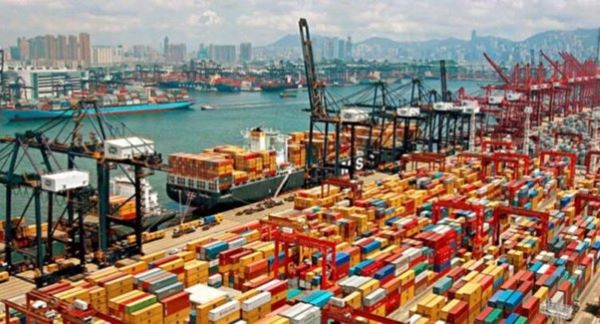Pump Up the Volume
The desire to stuff the market, hit your sales target and grab a juicy bonus is human nature for anyone in sales. Tom Bruce-Gardyne assesses the Scotch industry's efforts to reign in those urges in the name of balance …
"We're adding a little something to this month's sales contest," the four hapless real estate salesmen are told early on in that classic 1992 film - ‘Glengarry Glen Ross'. "The first prize is a Cadillac Eldorado. The second prize – a set of steak knives. The third prize is you're fired."

David Mamet's screenplay may be an extreme, cut-throat example, but incentivising sales is all part of the push of getting product to market. For Scotch whisky it helps propel the drink down the bottling line, onto lorries and ships and off to distant warehouses and out to the point of sale, where hopefully the power of the brand can pull the bottle off the shelf.
Encouraging ‘the push' - but not too much - is crucial. This came up at Diageo's gruelling Capital Markets Day in New York in November having revealed the extent of its woes in Latin America. One of the analysts, James Edwardes Jones of RBC Capital Markets, wanted to know what the company was doing to persuade its teams to ‘sell out' rather than just ‘sell in', "and actually pay people for executing the culture?"
"For the people actually doing the selling, their bonus structures are predominantly ‘sell out'," replied Diageo's FCO Lavanya Chandrashekar. As a member of the company's remuneration committee, she added that: "before we pay out any bonus, we do have a quality check where we look at whether the results have been achieved in a high-quality way. So, stock in trade is a very large part of that."
Her colleague John O'Keefe, president of Asia Pacific, Global Travel and India, claimed: "Our general managers are focussed on one thing, and that is market share … that is the delta on the bonus that they get for the entire team in that business."
CEO Debra Crew referred to the old ‘sell in' culture of "10 years ago", and insisted: "that is not what it is today at all. So, we try to measure as far down the supply chain as we possibly can as we're putting together incentives for people that are in our commercial organisation, so that there is no adverse incentive there."
Crew's mention of "10 years ago" recalls Diageo North America's US$5 million fine by the Securities and Exchange Commission (SEC) for inflating its figures in its 2014/15 fiscal years. To quote the SEC, it gave the appearance the company: "achieved reported growth through organic net sales when, in fact, the results were achieved principally through over shipping unneeded product." These charges were neither admitted nor denied, but the fine was paid in 2020.

In fairness to Diageo, others have been caught doing the same thing, and the whole issue of bonuses and year-end targets is baked in to the industry, especially among the publicly quoted players. Yet while the message from company HQ is always about promoting good behaviour, down on the frontline, when push comes to shove, that's not always how it pans out.
It was a former Diageo executive who told me of being pressed hard by his boss to find more sales in the final weeks of a financial period. It clearly wouldn't have passed Chandrashekar's "quality check" - in fact both parties knew it was against corporate rules. When pressed again, he was smart enough to respond: "Put it in writing, and I'll see what I can do." Needless to say, no email was ever sent.
In theory, the big corporations have become a lot more disciplined and have far better tools for gathering data, but the tools "are not infallible," says the Drinks Business journalist, Ron Emler. He also points to parallel trading that muddies the picture considerably. "Everybody's allegedly pulled out of Russia – not so," he says. "EU rules state that you cannot refuse to supply an EU purchaser who's prepared to pay what you're asking. You've got people in Latvia and Estonia buying up stocks from Diageo, Pernod, Campari, LVMH … and shipping them to third-parties in Russia."
Before Putin invaded Ukraine, Russia was Scotch whisky's sixth most valuable export market - who knows what it is today. China is another notoriously opaque market, where producers like Whyte & Mackay are forced to rely on third party distributors. "We don't get sales data back, so we don't have visibility of where it's being used and where it's showing up," say Kieran Healey-Ryder, the firm's head of global comms. He has lost count of the number of sales calls where he has heard the line – "Trust me. You're a long way away in Scotland."

But he adds: "I'd say, in most markets in Europe and North America, there just isn't the opportunity for stock to sit at unreasonable volumes, and every warehouse is being optimised to within an inch of its life." Rupert Patrick, co-founder and chairman of WhiskyInvestDirect and head of James Eadie, agrees, saying: "The wholesalers and importers are not stupid. They don't want to sit on excess stock because it burns their cash too."
Having worked for Beam and Diageo among others, he questions the current corporate approach to incentives. "It's very difficult to work on the basis of ‘sell out' because you don't control that," he says. "You can't get all the numbers." There is certainly more transparency in some markets than others, and plenty of fun and games around the fringes of the grey market.
Yet for all the short-term incentive schemes and the need to pander to the City, it appears things are better than they once were. And for now, whisky stocks out in the market are not frighteningly big - as far as we know.

Award-winning drinks columnist and author Tom Bruce-Gardyne began his career in the wine trade, managing exports for a major Sicilian producer. Now freelance for 20 years, Tom has been a weekly columnist for The Herald and his books include The Scotch Whisky Book and most recently Scotch Whisky Treasures.
You can read more comment and analysis on the Scotch whisky industry by clicking on Whisky News.




